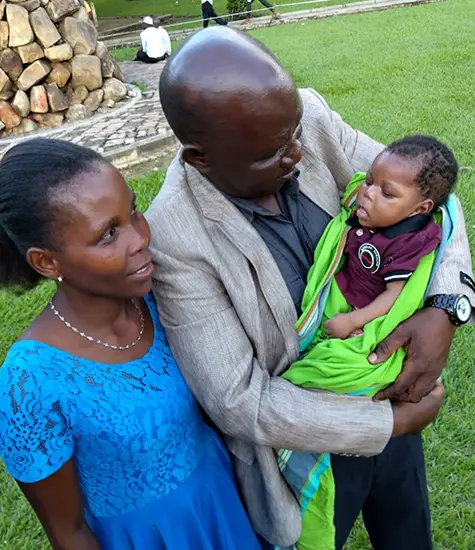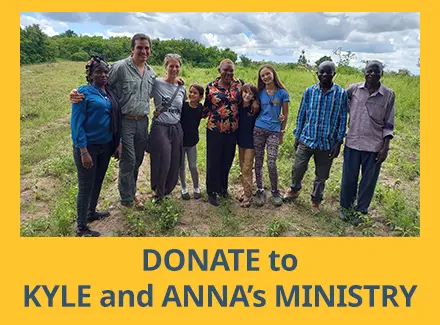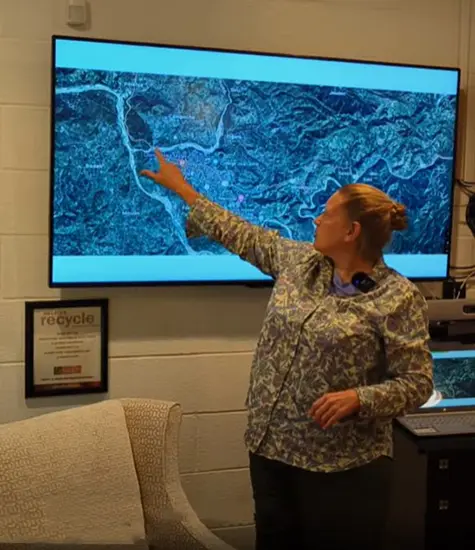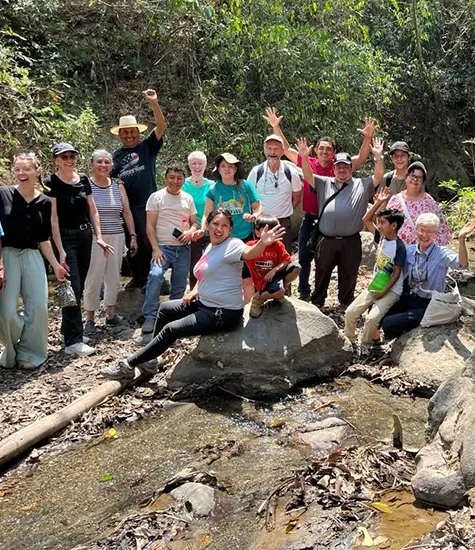Lent 2024 newsletter
Anna Johnson, Tanzania
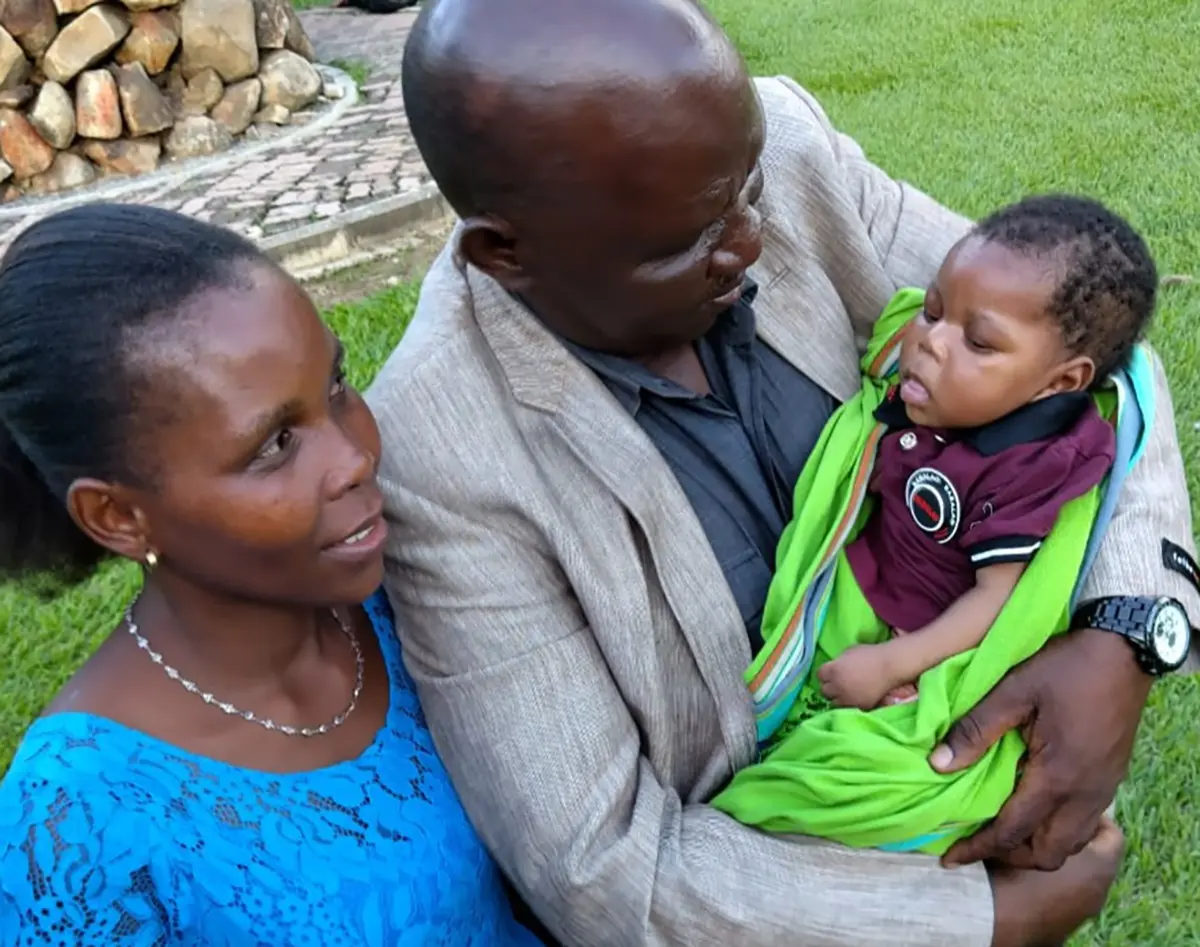
Salha with her mom and dad
The family I’m seeing today wants me to assess their 6-month-old daughter, Salha (not her real name).
She’s been to the hospital and seen a doctor — which, quite frankly, is uncommon for most of the children I’m asked to see. So we’re off to a good start. Yet all the information they’ve been given is in English, and they still don’t understand her diagnosis. I see the words cerebral palsy written in at least three different places.
As I unwrap her from the layers of blankets and clothing she is bundled in (a cultural norm I won’t ever quite understand, given that it’s a humid 82 degrees on any given day in Mwanza), I notice the tell-tale scarring on her arms I see with so many children with disabilities here: Before her visit to the medical doctor, she was seen by a witch doctor.
The cuts are healed now, probably a few months old, but still visible. Often, instead of cuts, keloid scars from healed burns are visible on the chest or legs. As an outsider, I’m not privy to this world of witchcraft and witch doctors, and I don’t know exactly what it is that occurs during these sessions. But I do see the permanent scars from them on many of the children I work with. I also know that no amount of cutting or burning will ever heal cerebral palsy.
Access to medical care in Tanzania is nearly impossible for many of the families I work with. Transportation alone to and from the clinic is often more than a family can afford. Sadly, this leads to a lack of education and understanding. Whether it is autism, cerebral palsy, down syndrome or spina bifida — most families will never have a medical diagnosis for their child, much less a clear understanding of what caused the disability, how it can be treated, and what to expect as the child grows.
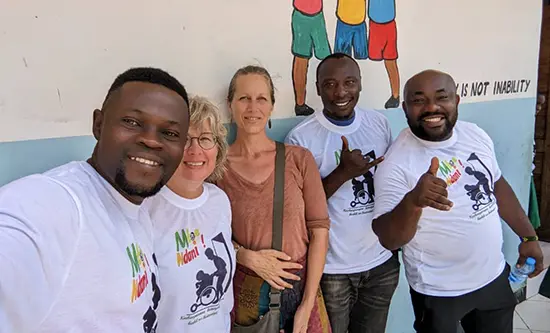
Volunteer Jody (specializes in autism) and I with inclusion school teachers. We will be training parents, caregivers, and teachers throughout 2024.
Education, I am quickly learning, is critical for these families, yet severely lacking. And without education, misunderstandings, misdiagnosis and fear become the norm.
I knew little to nothing about children’s disabilities when I stepped off the plane in Mwanza 12 months ago. My work in the U.S. as a nurse had been mainly with adults post-surgery. I’ve learned a lot in 365 days. And I’m optimistic that the families and communities I work in can learn a lot, too. The parents I work with at Huruma School want to know more. They want to understand what makes their child different from other children, how they can better communicate with them, and what they can do to help them.
Salha’s family understands her diagnosis now. They’ve been trained in a few basic physical therapy methods they can do at home to help keep her muscles relaxed and less rigid, and she is on a proper dose of medication to control her seizures. Her family knows that she probably won’t ever run around or communicate like their older children do. She’s going to be different.
Salha’s cerebral palsy will bring many challenges for her family. But they also understand what may have caused her disability medically and what can be done to help her live up to her full potential as she grows.
It’s only one afternoon in the mission field. One little 6-month-old. One family. But they will tell their family, and their neighbors. And perhaps, I hope, someone may know someone that knows someone like her. And they will tell them about Salha and her family. About how she has a medical diagnosis. And that there are medicines and exercises that might help. Salha, without ever knowing it, will educate her community on different options and possibilities for care of a child born with cerebral palsy.
Nelson Mandela said, “Education is the most powerful weapon which you can use to change the world.” As I enter my second year in mission in Tanzania, I am beginning to realize the power of educating parents and caregivers of children with disabilities. They are the key to permanent and lasting change for these children throughout Mwanza and all of Tanzania.
I am forever grateful for parents like Salha’s for wanting to learn and opening their minds to a new way of thinking. With knowledge and education, I believe, more children, like Salha, will have the opportunity to thrive and live up to their full potentials as they grow.
Please consider supporting our family’s mission work in Tanzania with a donation through the link below.
We invite you to walk with us as our “COMPANIONS IN MISSION.” Companions in Mission are friends and generous donors who give financial gifts on a regular (usually monthly) basis. For more information, visit Become a Companion in Mission. Thank you so much for your generosity!

